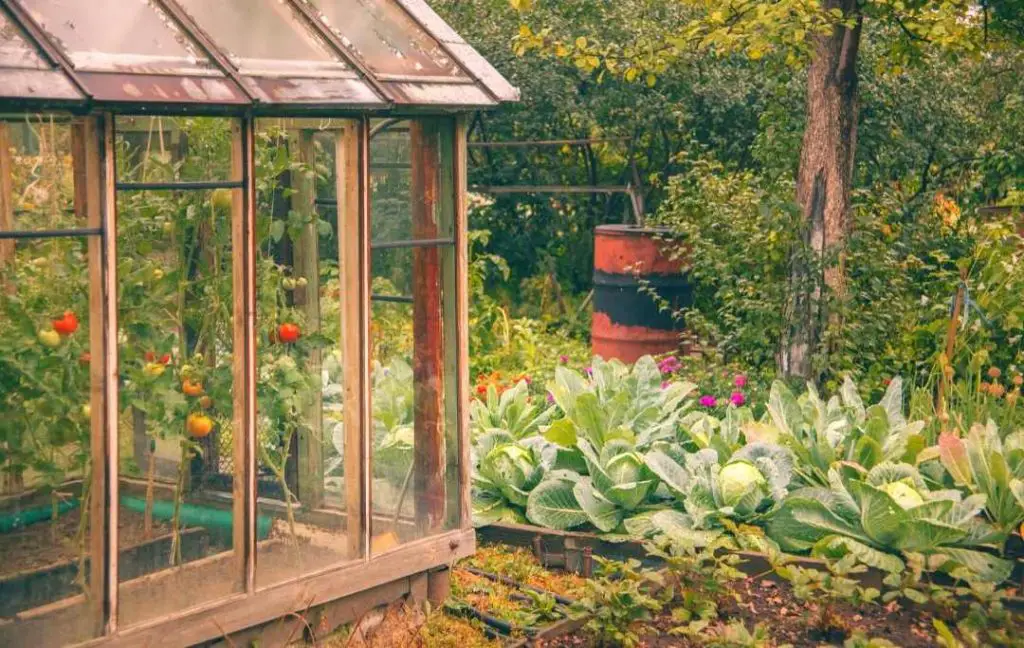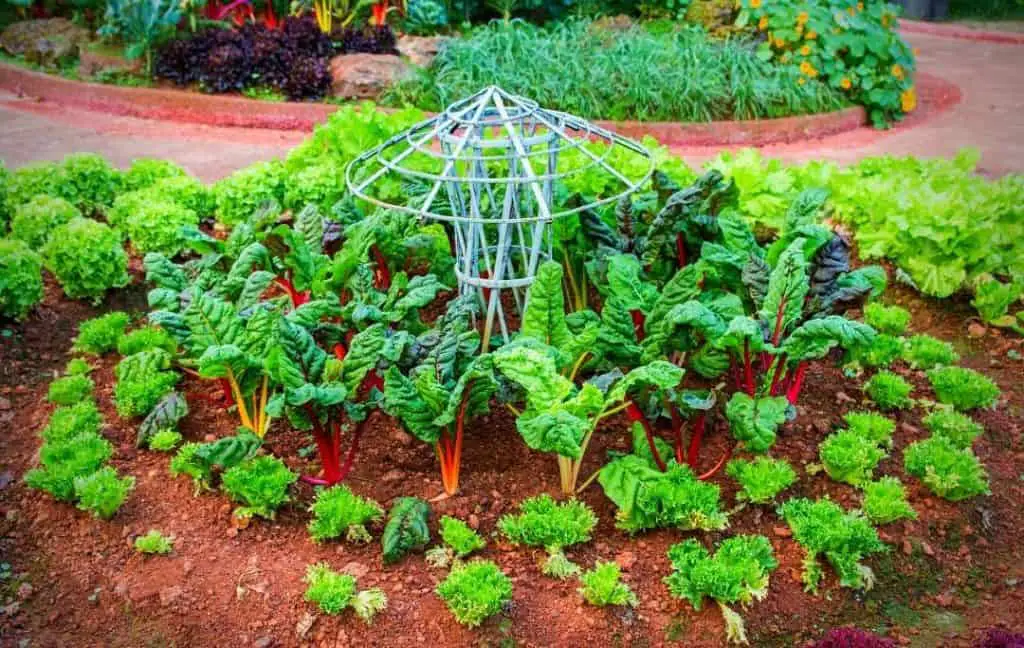It would appear to be a stretch to some people that there is a relationship to be made between gardening and the changing environment. There is, however, a direct connection between the manner in which we as a nation cultivate and distribute our food and the carbon emissions that are one of the primary contributors to the warming of the planet.

The worldwide industrial production of food is responsible for around 25 percent of the world’s total carbon emissions, as stated by the Environmental Protection Agency (EPA) of the United States of America.
The first step in the production of emissions is the clearance of land in order to make way for monoculture crops like corn and wheat. The cutting down of trees and the erosion of important soil components lowers nature’s capacity to absorb, distribute, and store carbon, which results in more carbon being released into the atmosphere and contributes to the rise in the concentration of greenhouse gases.
This is made worse by the use of fossil fuels in the transportation and application of synthetic fertilizers, as well as in the long-distance distribution of the food products that are produced as a result of these practices.
Damage has been done to both our ecosystem and our own health as a direct result of this unsustainable cycle of closed-loop consumption. When food is manufactured on such a large scale.
It needs to be stabilized with artificial additives and preservatives so that it can make it through the lengthy periods of time that pass between its manufacturing, distribution, and consumption. This type of “nutrition” that is generated is harmful to everyone’s health.
The solution is one that is simple to understand but difficult to implement; we need to reinstate the practice of promoting a direct connection between how we produce and eat our food.
It is critical for individuals to have an understanding of the process by which their food is produced and the environments in which it is grown, as well as the factors that influence the nutritional worth of their food and the most time- and money-efficient means of obtaining it.
To that end, let’s take a deeper look at 5 significant benefits of producing your own food and the reasons why it can help you provide a healthy diet for your family while also contributing to the battle against climate change:

1. Cutting Down On Waste And Carbon Emissions.
If you grow your own food, you won’t have to rely on the time-honored practice of getting all of your produce from a supermarket like you would if you didn’t grow your own.
While you buy food from these stores, you should remember the unfortunate but real truth that the food has traveled an average of more than 1,500 miles before it was ever consumed by anyone.
This is something that you should take into consideration while making your purchases. This not only has an effect on the food’s freshness and quality, but more crucially, it causes alarming levels of carbon emissions and waste that are related to air freight and other types of transportation to be released into the atmosphere.
By cultivating your own food, you are making a contribution to the reduction of the large amounts of fossil fuels that are burned and released into the environment as a direct result of the consumption of foods that are produced by commercial farmers.
You are also helping the environment by eliminating waste from the materials that are used for food packing, such as cardboard and man-made plastics, which travel hundreds to thousands of miles.
2. Your Garden Can Help Cool Down Your Home.
Air conditioning is something that modern man simply cannot seem to function without, particularly now that it seems as though the temperatures are becoming higher each year as a direct result of global warming.
Your home can be cooled by strategically planting trees and shrubs, giving shade and protection from the searing sun for your vegetable garden.
When you switch on your air conditioner, it contributes to the emission of gases into the atmosphere that are known as hydrofluorocarbons (HFCs). These gases contribute to global warming.
You won’t need to use your air conditioner as much if at all if you have a lot of leafy plants and tall trees to give shade. Not to mention the possibility that you will see a decrease in your monthly power bill as a result.
3. It Can Also Help Prevent The Erosion Of The Soil.
Erosion of the soil takes place whenever the top layer of soil is removed, which can be caused by factors such as wind, water, or agricultural practices. This presents a dilemma because the topsoil is where all of the nutrients that plants require to thrive are found.
The removal of this fertile layer not only has the potential to render the land unusable, but it can also result in the contamination of bodies of water like lakes and rivers.
The loss of vegetation in regions where soil erosion is a problem results in an increase in the amount of carbon dioxide in the surrounding environment. Growing plants that have a robust root system is one way to stop this from happening and keep the quality of the soil where you’re working intact.
In addition to the preferred vegetables and fruits, you should also plant plants that are effective in preventing erosion. Some examples of such shrubs include sun-loving creeping junipers and flowering forsythia.
4. It Results In Cost Savings.
You must have noticed how much food costs these days. Cherry tomatoes can cost as much as $5.00 for a pint, but a single tomato plant can generate as much as 30 pounds of fruit in a single growing season!
Even while you may have to make an initial investment in things like soil, fertilizer, seeds, starting plants, or containers, the amount of money you will save over the course of the project is astounding.
5. It Decreases The Amount Of Fertilizer And Pesticide That Is Used.
According to the most up-to-date information that was made available by the EPA, annual sales of insecticides in the United States for use in commercial food production reach well over $15 billion, while annual sales of fertilizer equal over $19 billion.
That’s a WHOLE LOT of man-made chemicals that are getting into our food supply! The artificially promoting monoculture food production through chemical treatments actually depletes the soil by damaging the beneficial bacteria and fungal networks that transmit nutrients naturally to plant roots. Without healthy soil, it is impossible to grow nutritious crops.
When you cultivate your own garden, you have complete control over the ingredients that go into the soil, as well as those that are applied to the plants and the amounts used. When it comes to choosing when to use a pesticide or fertilizer and whether or not they are synthetic or organic, the decision is ultimately yours to make.
